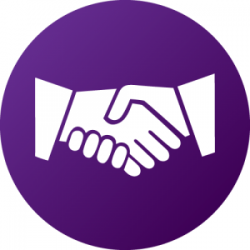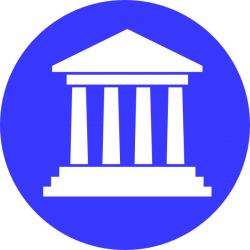Media Access Australia and the corporate sector

In a highly competitive business environment, every advantage is valuable. So being able to effectively engage with the 20% of the population with a disability, plus the 12%* of migrants from the past ten years who speak little or no English, makes good business sense.
If your website, ecommerce sites or shareholder documents can’t be effectively accessed online, then those with vision or hearing loss or impairment, as well as people with a cognitive condition, are excluded and are likely to be disappointed, complain, or simply go to a competitor.
However, improving the accessibility and usability of digital environments not only benefits current customers and prospects, but your suppliers, staff and managers too. Ensuring that your websites, intranet, applications, documents and online communications are accessible, allows businesses to significantly increase your reach through digital accessibility.
What we do
Media Access Australia helps businesses achieve digital accessibility, so that a broader audience including those who rely on assistive technology (for vision and hearing loss or impairment) can access your information online. We can also assist you to more effectively engage with people that have a cognitive condition from both within your own organisation and in the general public, along with the growing number of older Australians and people where English is a second language.
We have partnered with large companies and small to medium enterprises on a wide variety of digital accessibility projects including: undertaking annual website audits, Digital Accessibility Maturity Assessments, accessible content creation, document remediation, usability testing, in-house accessibility training, and enrolling staff in the university-accredited six-week part-time Professional Certificate in Web Accessibility course.
A key example of organisational change was to undertake a Digital Accessibility Maturity Assessment (DAMA) for a top 200 company which wanted to improve its engagement with customers as well as its internal team. The DAMA revealed gaps in accessibility awareness and knowledge and provided a benchmark against a clear set of standards and best practice. The Report found that with a focus on procurement practices, testing of key websites and a program of training, user experiences in digital environments could be noticeably improved for all audiences.
We have worked with: Coles, Commonwealth Bank, Compass Group, Cummins South Pacific, Fairfax Media, GeoLink, Gilbert & Tobin Lawyers, Horizon Research, McConnell Dowell, OPC IT, UXC Oxygen, Viocorp, and Virgin Australia.
* ABS 2015 statistics
Media Access Australia and digital agencies
![]()
All agencies doing work for Government utilities or departments need to ensure that the websites and digital comms you work on are accessible and validated as being so. Under the Digital Transformation Agency’s Digital Service Standard, stipulates that all Government websites should be compliant with WCAG standards and be accessible to people with a vision, hearing or cognitive disability or impairment (around 20%* of the population).
If the websites, apps, digital communications and documents you are creating for your clients can’t be effectively accessed online, then those with vision or hearing loss or impairment, as well as people with a cognitive condition, are excluded. And the same goes for your team and your suppliers – to be inclusive, your intranet and all of your internal applications need to be accessible too.
What we do
Media Access Australia works with digital agencies to ensure that the work you are doing for Government and corporate clients is accessible. This is particularly crucial on Government projects as there are mandated guidelines on accessibility that must be followed, supported by the Disability Discrimination Act.
Ensuring accessibility allows a broader audience, including those who rely on Assistive Technology (for vision and hearing loss), to be able to effectively access information online. And if you’re not directly addressing compliance issues, you are putting your work and reputation on the line.
Media Access Australia is a trusted accessibility adviser, providing specialist information and expertise on how to meet web accessibility standards and the requirements of government agencies with the Digital Transformation Agency. Our team remediates and validates the work of digital teams on projects to ensure that optimal accessibility is achieved. We also regularly work alongside project teams to deliver website audits, video audits, usability testing, Digital Access Maturity Assessments and in-house accessibility training.
One example of what we do was helping a leading digital agency ensure that the website they were building for a Government client was accessible and conformed to mandated standards. After conducting a web audit our team was able to pinpoint a number of access issues early on in the build, and then provided them with detailed instructions on how to fix the areas of the site which were inaccessible. After the agency made the required corrections we then officially validated their work as being optimally accessible and their client received a great looking website that was fully functional and ticked all the boxes in being accessible to people with a disability.
Who we have assisted
We have worked with the following digital agencies: BWM Dentsu, Bartzis Design, Folk, Hard Hat Digital, Horizon Research, Media on Mars, PreviousNext, Salsa Digital, Studio Polwarth, and UXC Oxygen.
* ABS 2015 statistics
Media Access Australia and the Government sector

Under the National Transition Strategy, all Australian Government websites must be compliant with the WCAG 2.0. Level AA Standards, which allow people with a disability or impairment (around 20% of the population) to access your online communications.
If your website, apps, digital communications and documents can’t be effectively accessed online, then those with vision or hearing loss or impairment, as well as people with a cognitive condition, are excluded. And the same goes for staff and suppliers – to be inclusive, your intranet and all of your internal applications need to be accessible too.
What we do
Media Access Australia helps Governments achieve digital accessibility so that a broader audience including those who rely on assistive technology (for vision and hearing loss or impairment) can access your information online. We can also assist you to more effectively engage with people with a cognitive condition from both within your own organisation and in the general public, along with older Australians and the 12%* of migrants from the past ten years who speak little or no English.
This not only ensures that Government departments and agencies are meeting your mandated requirements in digital, but improves the user experience for people of all abilities. Media Access Australia helps Federal, State and Local Government with annual website audits, usability testing, Digital Access Maturity Assessments, document remediation, in-house accessibility training, and enrolling staff in the university-accredited six-week part-time Professional Certificate in Web Accessibility course.
One example of what we do was helping a leading Government agency to become a leader in accessibility. A key challenge was the sheer number of websites they had and in conjunction with in-house training we conducted a far-reaching audit and produced a report that helped them gain the funding they needed to take next steps, which they have successfully done.
Who we have assisted
Over the past couple of years we have worked with the following Government departments and bodies: Australian Energy Regulator, Australian Health Practitioner Regulation Agency, Australian Public Service Commission, Department of Disability Sport and Recreation, Department of Parliamentary Services, Digital Transformation Office, Financial Ombudsman Service, and the National Disability Insurance Scheme (NDIS).
Media Access Australia has also assisted State Government departments and utilities including: HealthShare NSW, Melbourne Water, Northern Territory Government, NSW Attorney General & Justice, NSW Department of Education and Communities, NSW Department of Family and Community Services, NSW Ministry of Health, NSW State Insurance Regulatory Authority, Public Service Commission NSW, QLD Department of Education and Training, Queensland Ombudsman, SA Department for Communities and Social Inclusion, SA Water Corporation, Surf Life Saving NSW, Transport for NSW, and the Victorian Electoral Commission.
We have also done work for the following local councils: Bass Coast Shire Council, Central Coast Council, City of Melbourne, City of Sydney, Municipal Association of Victoria, Nillumbik Shire Council, Penrith City Council, and Singleton Council.
* ABS 2015 statistics
Media Access Australia and the tertiary education sector

In order to be able to reach out to as many prospective students and partnering organisations achieving optimal accessibility is a must. Being able to effectively engage with the 20% of the population with a disability, by having web and digital communications, apps, and documents that are fully accessible to people of all abilities, not only increases your reach but reduces the number of people who are excluded.
If your websites, learning portals, information sites, and enrolment documents can’t be effectively accessed online, then those with vision or hearing loss or impairment, as well as people with a cognitive condition, are excluded and are likely to be disappointed, complain, or simply go elsewhere to find the training or educational opportunities that they are after.
However, increasing your level of online accessibility not only benefits current and prospective students, but your teaching professionals and administrative staff as well.
What we do
Media Access Australia helps tertiary institutions achieve digital accessibility so that a broader audience, including those who rely on assistive technology (for vision and hearing loss or impairment) can access your information online. We can also assist you to more effectively engage with people with a cognitive condition from both within your own organisation and in the general public, along with older Australians, and the 12%* of migrants from the past ten years who speak little or no English.
We have partnered with tertiary institutions around the country on a wide variety of digital accessibility projects including: undertaking annual website audits, Digital Accessibility Maturity Assessments, accessible content creation, document remediation, usability testing, in-house accessibility training, and enrolling staff in the university-accredited six-week part-time Professional Certificate in Web Accessibility course.
One example of what we do was partnering with a leading tertiary education provider that wished to embrace and lead in the field of accessibility in the digital space. We provided a step by step solution that embraced all levels of their institution, and provided in-house training to turn key people into accessibility ambassadors. This project has concluded as the organisation now has the processes and expertise in place to be able to conduct their own web and digital access programs across their numerous communication channels.
Who we have assisted
Over the past couple of years we have worked with: Deakin University, University of New South Wales, St George and Sutherland Community College, and TAFE NSW.
* ABS 2015 statistics
